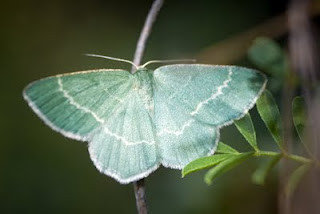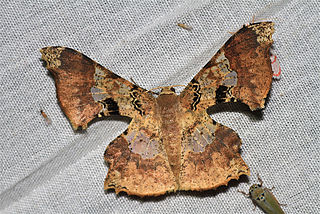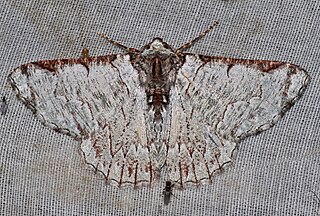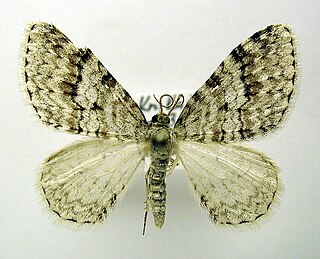| Apithecia | |
|---|---|
 | |
| Apithecia viridata wilemani | |
| Scientific classification | |
| Kingdom: | |
| Phylum: | |
| Class: | |
| Order: | |
| Family: | |
| Subfamily: | |
| Genus: | Apithecia Prout, 1914 |
| Species: | A. viridata |
| Binomial name | |
| Apithecia viridata (Moore, 1868) | |
| Synonyms | |
| |
Apithecia is a monotypic moth genus in the family Geometridae described by Prout in 1914. [1] Its only species, Apithecia viridata, described by Frederic Moore in 1868, is found in India, Nepal, [2] Bhutan, China and Taiwan. [3]

Moths comprise a group of insects related to butterflies, belonging to the order Lepidoptera. Most lepidopterans are moths, and there are thought to be approximately 160,000 species of moth, many of which have yet to be described. Most species of moth are nocturnal, but there are also crepuscular and diurnal species.

Frederic Moore FZS was a British entomologist. He was also an illustrator and produced six volumes of Lepidoptera Indica and a catalogue of the birds in the collection of the East India Company.

India, also known as the Republic of India, is a country in South Asia. It is the seventh largest country by area and with more than 1.3 billion people, it is the second most populous country as well as the most populous democracy in the world. Bounded by the Indian Ocean on the south, the Arabian Sea on the southwest, and the Bay of Bengal on the southeast, it shares land borders with Pakistan to the west; China, Nepal, and Bhutan to the northeast; and Bangladesh and Myanmar to the east. In the Indian Ocean, India is in the vicinity of Sri Lanka and the Maldives, while its Andaman and Nicobar Islands share a maritime border with Thailand and Indonesia.










